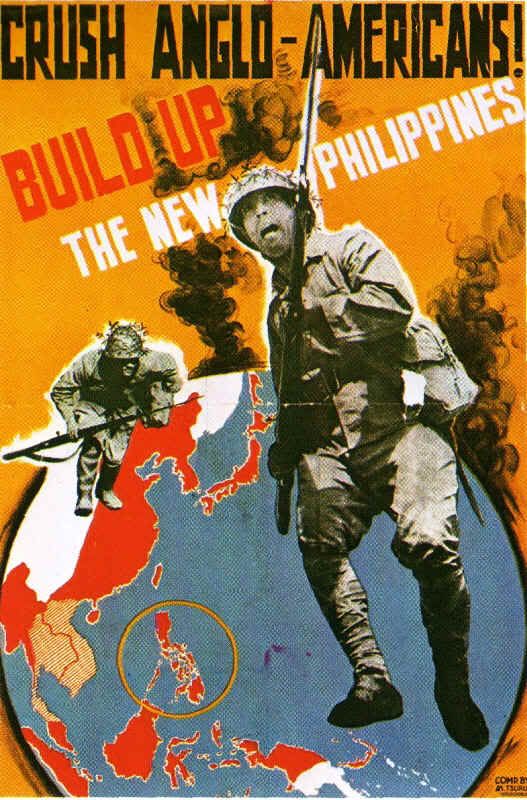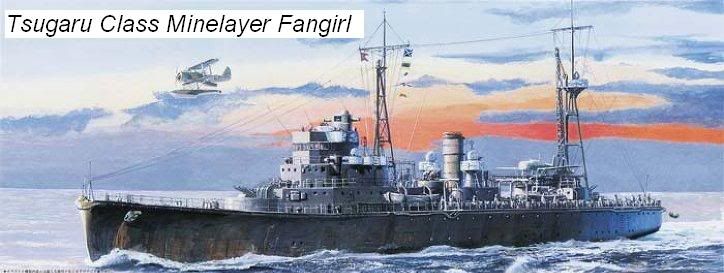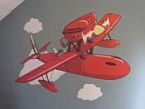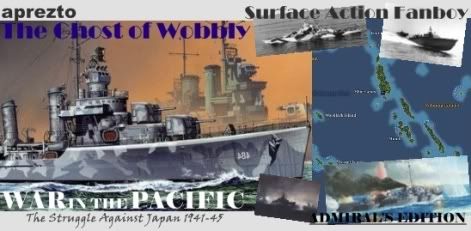ComradeP
Posts: 7192
Joined: 9/17/2009
Status: offline

|
quote:
Your counsel is the counsel of despair and ineptitude because it puts the locus of control externally. Once humans have an external locus of control they begin believing that since they can't control the outcome of events they are at the mercy of die rolls and that rapidly translates into sloppiness as they no longer take every pain to ensure that their plans are formulated to have maximum success. After all, why put in all that effort if the die rolls will determine whether you succeed or fail?
You're still misinterpreting my post. Whilst I'm talking about how a certain number of recent events were influenced by luck in such a way that their results were disproportionate or in favour of the Allies, you're saying I'm putting the focus of the entire game on luck, whilst that is most certainly not what I'm doing.
You asked whether I, if things go well, say I got lucky rather than the results are due to skill. If I roll good rolls, I say I roll good rolls. If I roll 3's on a 6 sided dice and I can still advance, then the plan is solid. I find it really weird that some people would rather be lucky than good, as I'm wondering why they play wargames to begin with. What satisfaction can come from something you can't directly influence (die rolls) if that is the thing winning you the game?
As WitP:AE is a game, the results are not only influenced by the plan but also by various kinds of random number generators rolling certain results. Those results can often either not be influenced directly by the player, or can only be influenced to a certain extent. Better odds don't have to yield better results, and there's no scientific link between the amount of manpower/force used and the eventual result, which can still be as bad when you're using 100.000 men than when you're using 1000.
quote:
Once you have an external locus of control you often stop trying to improve since your actions have minimal effect anyway and, IMO, anything which thus preaches of the external locus of control is the counsel of despair and ineptitude.
The same can be said for success: victory disease is one of the most common causes for military failure, a historical example would be German victory disease at the start of Barbarossa, or Allied victory disease after the victory in Africa.
I'm not saying actions have minimal effect, and actually have no idea why you constantly state I said that. I'm saying that in a small number of encounters thus far, Cuttlefish's actions have had little effect.
quote:
Hmm, external locus of control + counsel of despair. I don't accept that there are situations in which one cannot influence in-game events in a meaningful way.
I already pointed out to you that, mathematically speaking, there are plenty of those situations: if you roll 1's and your opponent rolls 6's, see what you can do. Your theory implies that you can influence every situation in a wargame in a positive way. That is simply not the case. Things can, and will, go absolutely wrong from time to time in a way you can't fix. If you, again, insist that isn't the case, I will repeat my suggestion that you play a game where you artificially always roll the worst result possible and your opponent always rolls the best, you'll see that your overall strategy quickly goes out of the window due to the poor rolls.
You'll probably start claiming that I'm talking about how everything is a matter of luck, but I'm really hoping you finally see what my point is. The more evenly sides are matched, which in this case would be after the initial Japanese expansion (which favours the Japanese), up to the arrival of the avalanche of Allied equipment from late 1943 onwards (after which the strategic situation favours the Allies). The results can also become even more skewed because in the case of the War in the Pacific both sides, but especially the Japanese, losses actually hurt both on the short and the long term. The loss of a single carrier, not to many multiple, will have a significant on the course of the war. On the Eastern Front, the loss of a handful of divisions would not have posed a significant problem. If the Japanese or Allies lose 5 divisions in a way that they won't come back because their cadres are dead, they will feel the pain. That's why what looks like a minor engagement, such as a SCTF engaging another SCTF can actually be a very important affair.
quote:
E.g. If the battle is going very much against you you can switch the terms of the battle or refuse the battle or create a strategic focus elsewhere etc.
For starters, you can't always do that, as sometimes you have to fight. More on that later.
quote:
Very often you see people posting on these fora complaining that x or y is broken and isn't amenable to the effects of their play. When you examine the situation closely you almost always find that they have deployed their forces sub-optimally and are merely reaping the results.
...which is why I'm not talking about how something is broken. Discussions about how unbalanced certain pieces of equipment are will often be nonsense and/or futile and/or pointless. There are cases where equipment needs to be fine tuned, but most of the time the complaints are about an atypical result caused by poor strategy.
quote:
As to the surface combat TF... The mix of main gun calibres was sub-optimal as was the TF size. I think Cuttlefish would have found better "luck" as you put it by sending in two TFs, one centred on Yamato and another centred on the Kongo and Haruna + the CAs. Of course that wouldn't be the outcome of luck but merely the utilisation of knowledge gained from running hundreds of tests on the surface combat model in WiTP in order to determine the weight of various factors which feed into surface combat resolution. That's why I dislike the emphasis on "luck". With knowledge and thought you find that most of the things which are put down to "bad luck" end up actually being things which one DOES have control over its just that the player involved didn't have the knowledge base to realise that.
That is also why my emphasizes is not on "luck" for an entire game, but rather on what influenced certain actions and why the many variables turned into a result that would seem to be off. I think the raider TF was too big and is geared for a regular SCTF engagement rather than raiding. I'm not too sure whether two SCTF's would have created a better result: considering the poor showing of the combined TF, which had a firepower advantage, two smaller TF's without a firepower advantage doesn't seem to be likely to create better results.
Statistically speaking, placing 3 BB's with support against 1 BB with support will be more likely to damage the 1 BB TF than 1/2 BB's with less support against 1 BB with the same amount of support. Of course, you'd get more rolls which could compensate, but the result could be even worse than the current result, especially in the middle of the night. You'd also have the problem that, during the day phase, the two smaller SCTF's might run into something they can't handle whilst split up, whilst they could easily handle it as the big SCTF Cuttlefish created. I have the feeling that results would've been quite a bit more ugly for both sides during a daytime engagement.
quote:
Nonsense. Winning the aerial war or the naval war isn't required to hold the line in the DEI for now. What is required are a few, mutually supporting bases with large numbers of troops and increasing fortification values. Putting those troops on those bases isn't a matter of "luck" but planning. Since it is a matter of planning die rolls don't come into it. If I have 1500 AV on a base and I have Level 6 forts and jungle terrain on my side and the enemy lands with 500 AV I have no need for "luck" to hold that base. Simple.
For starters, the vast majority of the players did not really ponder the chances of being overrun through the Allies recapturing Timor in late 1942. Likewise, the AAR's up to the point where Q-Ball launched his attack did not show many signs of preparation for that eventuality. Why? Because it rarely happened before and the Allied advance mostly started in other areas. People act now as if Q-Ball's strategy was always the most obvious, but clearly most people thought otherwise until the strategy was revealed and turned out to be successful.
The problem with your suggestion, and the main reason why it's far from "simple" is that to the Japanese, bases have a very different strategic value than to the Allies. The Japanese don't have the means to turn dot bases into powerful ports/airfields in 1942 or even later on. The Allies can do that in 1942. If you, after having lost air and naval superiority, have 1500 AV in a base, behind level 6 forts (Cuttlefish already detailed that level 6 forts are a rarity due to how early it is in the game) in a jungle hex, and I would land with 500 AV, I would cancel the landing, find one of the many dot or regular bases that are around in the DEI, build that up and leave you with 3 divisions worth of starving AV in a base I really couldn't care less about because I have so many other options.
You would have no means of extracting those AV as you'd either have to move them out of the base (in which case, as you're describing a jungle environment, you'd have to bump me out of a jungle hex with poorly supplied troops) or transport them out by air or sea. The last options are not possible because you lost control of the skies and the sea. If you put 1500 AV in a single hex in the DEI as the Japanese without air or naval superiority, you're basically just creating a starving POW camp for yourself. That's why you need a good result or two: to keep a balance in the skies and to make sure the Allies don't rule the seas as early as February 1943. As I said: you name me a strategy, I'll find the holes in it. An advice to put 1500 AV in a single hex isn't really going to work for the Japanese, not anymore in any case. There are way too many ways to bypass bases in AE.
quote:
As to the "there are far too many bases to defend" argument... That shows an error in thinking. There are a lot of bases BUT one only needs to hold a small number of them in order to achieve one's strategic goals.
Which in turn shows an error in thinking by you: those small number of bases he's holding are probably mostly either irrelevant to the Allies or can be cut off and attacked when the garrison is starving. Q-Ball doesn't need any particular base in the DEI at this point. It would perhaps speed up or cause Japan's early defeat, but he doesn't need them for strategic reasons. For every base hex you're holding, he'll find a handful of dot bases you're not holding and build them up. I'd actually be happy as the Allies if the Japanese concentrate on, say, Java or Sumatra, as I could go island hopping in the central Pacific at my leisure (the majority of the credible Japanese forces being in the DEI) or strike through the central DEI into the Phillippines and beyond if needed. When you're talking about holding single bases with 1500 AV, you're really thinking in terms of vanilla WitP, not in terms of what's possible in AE.
-
Sorry for derailing your thread by the way Cuttlefish. You're right in that good and bad luck are mostly caused by hundreds of smaller factors and Q-Ball is certainly a good player, but I can't help but think that the latest results have been easy on him, as the majority of his gambles are working with minimal loss. I'm hoping your morale will recover to such an extent that, regardless of what the outcome might be, you'll enjoy the game. This is a great AAR, like Q-Ball's, and it would be a serious pity if the game would end prematurely in some way.
|
 Printable Version
Printable Version











 Unfortunately leaving Regiments etc. in each likely target isn't even slowing him down. He seems to bring too much to each base. Would it not be better to leave some bases all but empty and defend others with more strength? Hoping that one of his invasions stalls and he has to rush in unprepped reinforcements and straining his carrier and LBA in long term support of the beleagured attack? Do it once and he will be worried it can happen again and again.
Unfortunately leaving Regiments etc. in each likely target isn't even slowing him down. He seems to bring too much to each base. Would it not be better to leave some bases all but empty and defend others with more strength? Hoping that one of his invasions stalls and he has to rush in unprepped reinforcements and straining his carrier and LBA in long term support of the beleagured attack? Do it once and he will be worried it can happen again and again.  ). It should also allow you to withdraw most of your LB Naval air from there back to the DEI. While Netties may not be able to stop the invasions when his CVs (and it's probably not wise to try). But they can act as a dangerous reserve that can exploit any weaknesses or mistakes he makes.
). It should also allow you to withdraw most of your LB Naval air from there back to the DEI. While Netties may not be able to stop the invasions when his CVs (and it's probably not wise to try). But they can act as a dangerous reserve that can exploit any weaknesses or mistakes he makes. 













 New Messages
New Messages No New Messages
No New Messages Hot Topic w/ New Messages
Hot Topic w/ New Messages Hot Topic w/o New Messages
Hot Topic w/o New Messages Locked w/ New Messages
Locked w/ New Messages Locked w/o New Messages
Locked w/o New Messages Post New Thread
Post New Thread